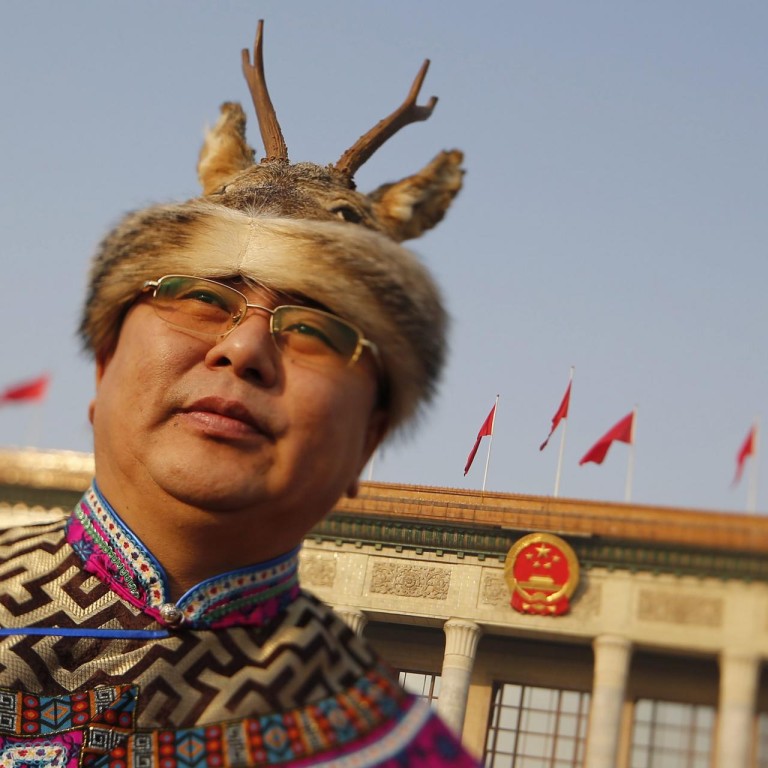
Ethnic minorities worry Beijing's growth effort could pass them by
Delegates say ethnic areas lack the industry and infrastructure to meet Beijing's economic goals
The central government's goal of building "a moderately prosperous society in all respects" by 2020 may be dampened by sluggish economic growth in ethnic minority and border areas, some political advisers have warned.
At a group discussion at the annual session of the Chinese People's Political Consultative Conference on Monday, ethnic minority delegates said that making such underdeveloped regions prosperous in just seven years was a very challenging task.
Luo Liming , deputy director of the State Ethnic Affairs Commission, called on the central authorities to pay special attention to those areas so that the 55 recognised minority groups across the nation could meet the goal, set by President Hu Jintao in his report to the Communist Party's national congress in November.
Hu said that in the envisioned "moderately prosperous society" in 2020, gross domestic product should be double that of 2010 and so should the incomes of urban and rural residents.
Luo said one major problem was that many minority areas lacked a pillar industry capable of ensuring steady incomes.
"The central government has a policy to help governments in the 136 border counties to build their pillar industries, but by now only 50 to 60 such counties have succeeded in doing so," he said.
He said seven years was a very short timeframe to reach to goal because improving many things, such as infrastructure, would take a long time.
"For example, the building of railways takes not months but years," he said. "We have to start now."
Dao Shuren , deputy president of the Buddhist Association of China, urged the central authorities to attach more importance to minority groups and religions in order to rein in a widening wealth gap.
"Now we are seeing more and more companies going to border areas. But many of them ignore the folk culture," he said, adding that such development tended to cause disputes and did not help the local economy.
Qi Dechuan , a researcher at the ethnic minority language commission in Yunnan , said his biggest concern was whether the minorities in the province Yunnan could live a comfortable life as described by the central leadership by 2020.
According to the government's poverty alleviation plan, all those living below the poverty line should have adequate food and clothing as well as basic education, health care and housing by 2020. By then, the average income of farmers in areas categorised as poverty-stricken should be growing faster than the national average, and so should key indices for basic public services.
The poverty rate in regions populated by ethnic minorities is 13.8 percentage points higher than the mainland average, according to a survey by the State Ethnic Affairs Commission released in November.
The poverty alleviation plan for 2011-20 designated 14 areas, mostly mountainous regions and those populated by ethnic minorities, as its "major battlefields" in the fight against poverty before 2020. Those 14 areas include 680 counties, of which nearly 55 per cent are ethnic minority autonomous counties and more than 50 are located on international borders.
According to the State Council Leading Group Office of Poverty Alleviation and Development, more than 10 per cent of the mainland's rural population, or nearly 100 million people, are still living in poverty - earning less than 2,300 yuan a year.
The central government spent nearly 300 billion yuan on poverty alleviation last year, almost a third more than in 2011.

